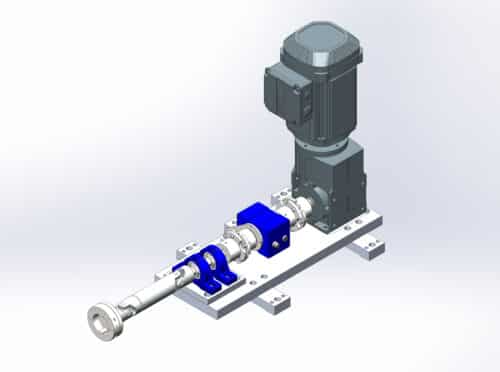SGN Electrical has built two new test rigs using wireless torque sensors, to effectively test landing gear and to examine the flaps of an aircraft’s tailplane

SGN Electrical, a company in Sittingbourne, Kent, has successfully built and implemented two test rigs. The first rig is dedicated to testing the landing gear, while the second rig is specifically designed to examine the flaps of the tailplane. The company conducts these rigorous tests to guarantee the secure and dependable landing of transoceanic-scale airliners responsible for transporting hundreds of passengers.
One of the test rigs focuses on examining the ball screws responsible for raising and lowering the tailplane flaps. According to the company’s claim, the rig goes beyond a simple, functional test by simulating the airflow experienced by the aircraft during high-speed flights. To achieve this, a hydraulic actuator is employed to apply a carefully measured and variable load to the ballscrew, replicating the conditions encountered in flight. The second test rig evaluates the landing gear by replicating the forces exerted on the main lead screw when the wheels are extended and making contact with the ground during landing. According to the press release issued by the company, this comprehensive testing encompasses not only the typical loads encountered during regular landings but also factors in additional stresses that may arise during adverse weather conditions. Moreover, the rig is designed to simulate sudden shock loads during emergency landings.
According to the company’s claim, both test rigs employ the TorqSense transducer. “There is no need to spend time setting up fiddly slip rings every time you use the rig,” explains SGN’s Scott Nicholson. “Using TorqSense makes it easy to build a test rig,” says Scott, “but far more importantly it makes the tests much, much quicker and easier. Therefore more tests can be done in a given time, which means results can be checked, double-checked and checked again – which is pretty much the operating procedure required for aircraft safety.”
For more information, click here.







